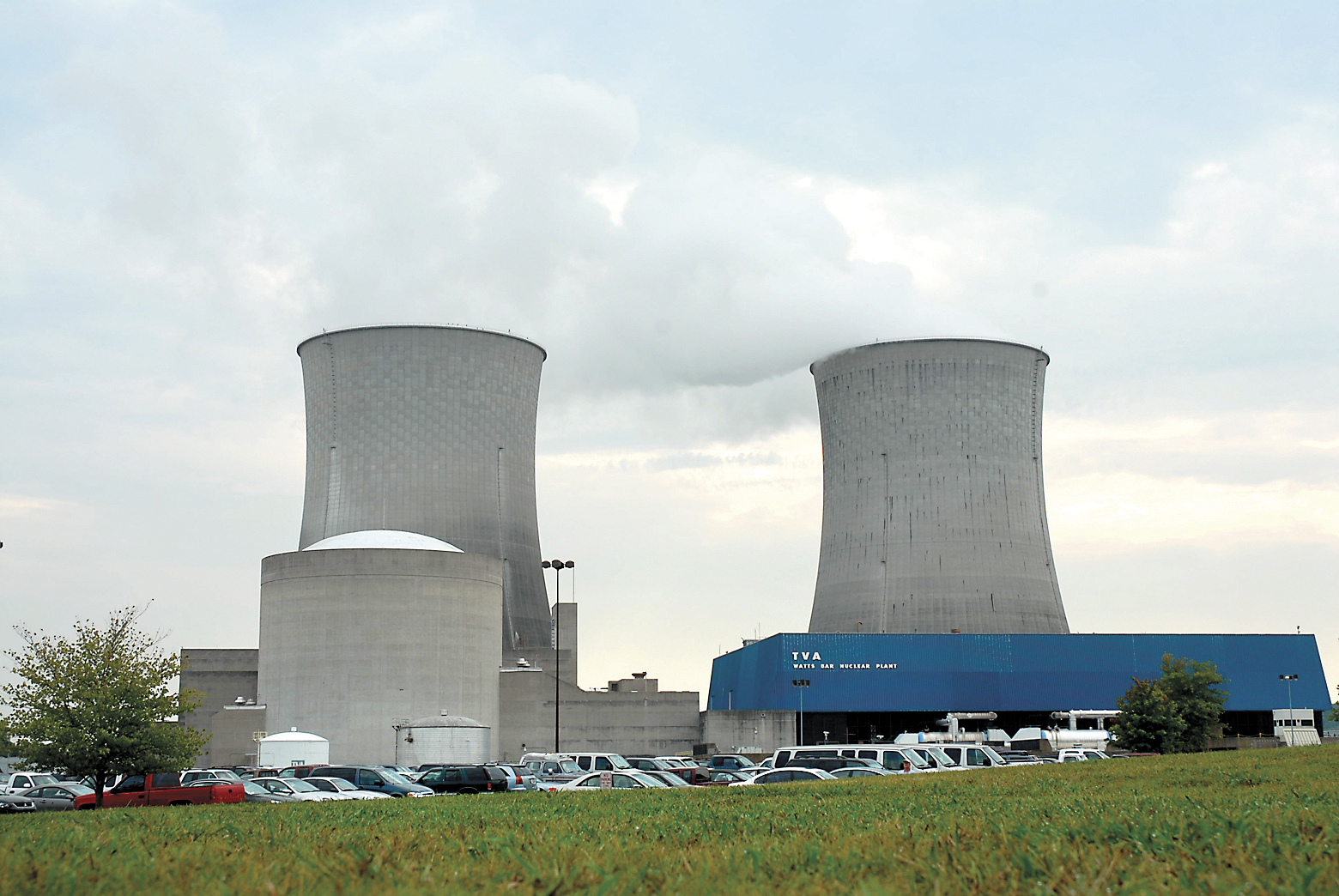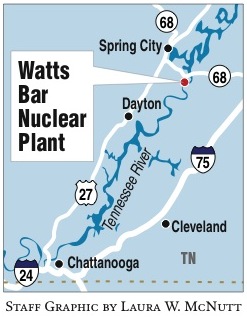If you go
What: Watts Bar meetingsWhen: Thursday, Dec. 8What time:2-4 p.m. and 6:30-8:30 p.m. for public comment1-2 p.m. and 5:30-6:30 p.m. for informal "open house" sessionsWhere: Magnuson Hotel, 1421 Murrays Chapel Road, Sweetwater, Tenn.
RELATED DOCUMENT
Click here to read the report.
The Nuclear Regulatory Commission is seeking public comments on its preliminary finding that there are no environmental impacts that would preclude issuing an operating license for the Watts Bar 2 reactor being built near Spring City, Tenn.
Although this is the Tennessee Valley Authority reactor where two men recently were charged with falsifying safety cable inspections for cables not yet even installed, an update of the plant's 33-year-old draft report does not include such information. Instead it takes a broad-brush look just at environmental issues.
"The NRC staff concludes that impacts associated with the operation of [Watts Bar] Unit 2 on ground water quality, public services, noise, socioeconomic transportation, cultural and historical resources, greenhouse gas emissions, and severe accidents would be small" and "would not result in a disproportionately high and adverse human health or environmental effect," the draft study states.
"Basically, there are no environmental impacts that stand in the way of NRC issuing a start-up license for Watts Bar Nuclear Plant's Unit 2," said NRC spokesman Joey Ledford.
Sandy Kurtz, a longtime TVA critic and anti-nuclear activist is skeptical.
"It defies common sense for NRC to say a second nuclear unit at Watts Bar would have no significant environmental impact. It doubles everything: twice as much heat in the water impacting aquatic species and water quality; twice as much water evaporated via cooling towers leaving less for all other uses, twice as much radiation in the air; twice as many radionuclides, including tritium in our drinking water; and twice as much nuclear waste kept on site with no place to send it," she said.
TVA has said construction problems at Watts Bar have put the reactor over budget and behind schedule. It now is expected now to go online in 2013, rather than 2012.
Kurtz also questioned construction problems, including what she called "a history of record falsification and dishonesty during construction" at Watts Bar.
"There is twice the likelihood of human error leading to a serious accident with poor evacuation education for our citizens. NRC is not regulating for public health as it is charged to do," Kurtz said.
The public can weigh in on NRC's finding Thursday in two public meetings in Sweetwater, Tenn.
TVA spokesman Terry Johnson said the federal utility also updated their part of the environmental impact statement.
"And it confirmed what the original environmental report had shown," Johnson said.
The original report was done in 1978. But TVA halted construction of the Unit 2 reactor in 1985, said Ledford.
Ledford said the cable inspection falsifications shouldn't have shown up in the environmental impact study because the cases were "apples and oranges" from it.
The study's supplemental report does show that Watts Bar reactor 1 has had tritium leaks detected in groundwater monitoring wells at levels nearly 20 times higher than NRC reporting levels. The study states TVA had fixed the leaks and "current concentrations in groundwater are well below" the NRC reporting level.
Ledford said the NRC will incorporate Thursday's comments -- along with other written public comments received by Dec. 27 -- into a final environment impact statement.
Once NRC approves the environmental impact statement and its process, TVA has one more significant step to take to ensure the issuance of a license.
"That is the safety evaluation," Ledford said. "It looks at more of the security issues and things such as the [reactor's] seismic rating. We expect that in May 2012."
That safety evaluation also is unlikely to consider the falsifications, however.
"I don't think these particular cases would rise to that level," Ledford said.


